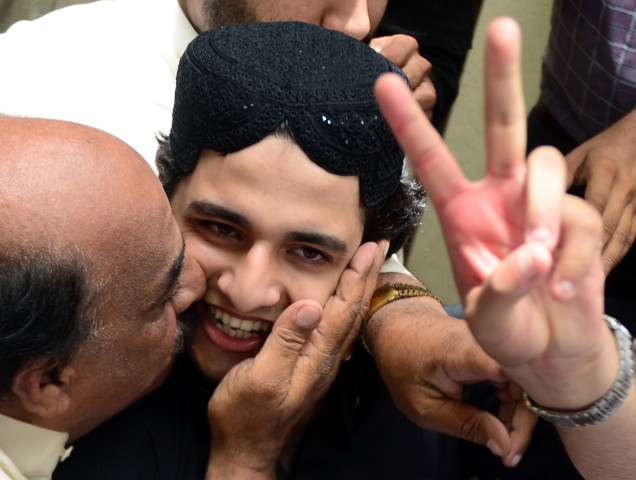Shahrukh Jatoi freed from Malir Jail after 10 years
Main accused in Shahzeb murder case is set free after Supreme Court of Pakistan acquitted him and others

Shahrukh Jatoi, the main accused in the high-profile Shahzeb Khan murder case has been freed from the Malir Jail after 10 years, according to prison authorities.
The action has been taken after the Supreme Court of Pakistan had ordered the acquittal of culprits in the Shahzeb murder case last month, Express News reported.
The top court had annulled the Sindh High Court's verdict to uphold the punishment of the accused individuals in the case and ordered their release following reconciliation with the bereaved family.
Following the order, Sindh High Court Registrar wrote a letter to the Jail Superintendent to release Shahrukh Jatoi. After which, the Jail Superintendent released Jatoi immediately.
It is pertinent to note that in December 2012, Shahrukh Jatoi along with his fellows shot 20-year-old Shahzeb Khan dead, in Karachi's posh locality Defence Housing Authority (DHA).
The case was heard in the Anti-Terrorism Court (ATC) where Shahrukh Jatoi and Siraj Talpur were sentenced to death. Later, Sindh High Court (SHC) converted the death sentence to life imprisonment.
Also read: Shahzeb murder outcome of 'personal egoistic approach': SC
As per the reports, soon after Jatoi was sentenced to life imprisonment, Shahzeb’s parents approached the courts to pardon the culprits.
Yesterday, the Supreme Court issued a 17-page detailed judgement authored by Justice Sayyed Mazahar Ali Akbar Naqvi, in which it held that the Shahzeb murder case was the outcome of a “personal egoistic approach” and there was “no element of terrorism”.
In the detailed verdict the top court explained the reasons for acquitting Shahrukh Jatoi.
The judgement said there was no ambiguity left that the case was the outcome of a “personal egoistic approach” and there was no design or purpose of destabilising the government, disturbing the society or hurting a section of the society with a view to achieving objectives which are essentially political, ideological or religious.
Therefore, provisions of the Anti-Terrorism Act (ATA) were not applicable in the case.



















COMMENTS
Comments are moderated and generally will be posted if they are on-topic and not abusive.
For more information, please see our Comments FAQ